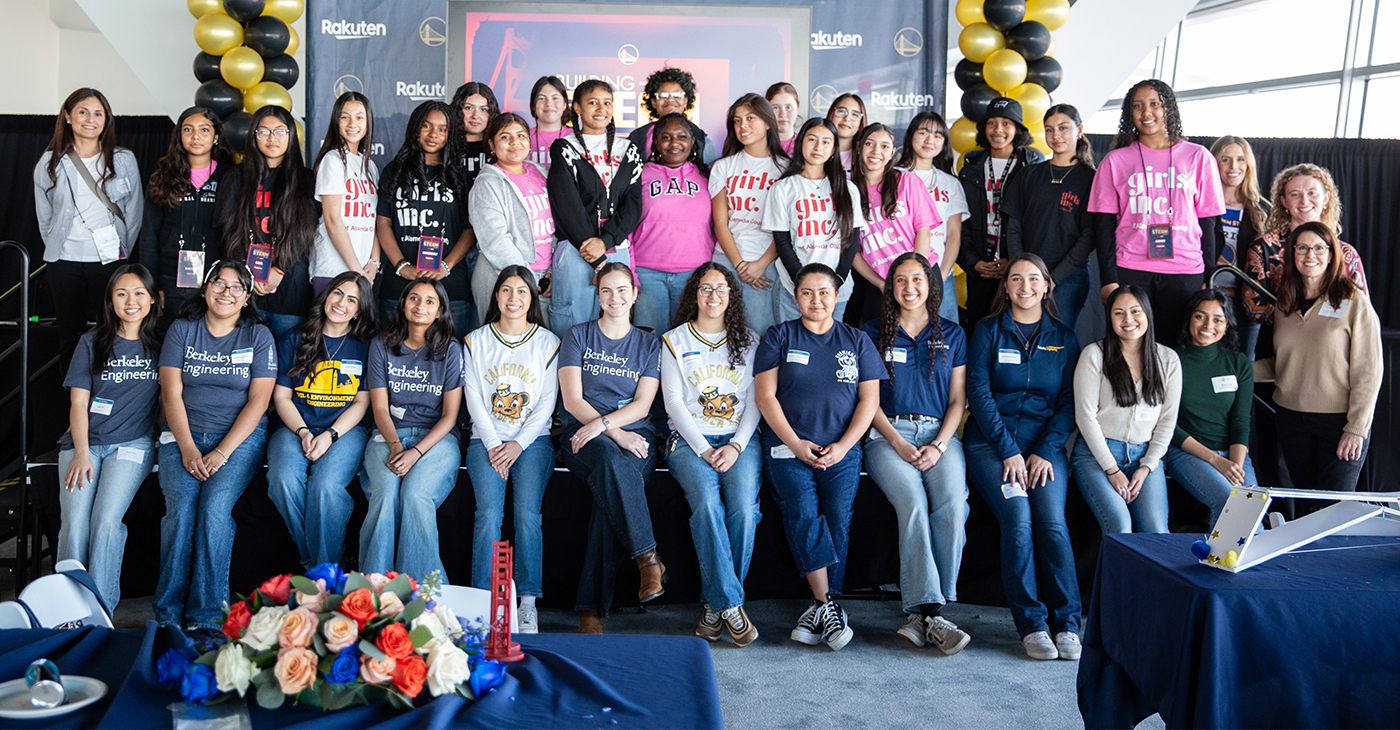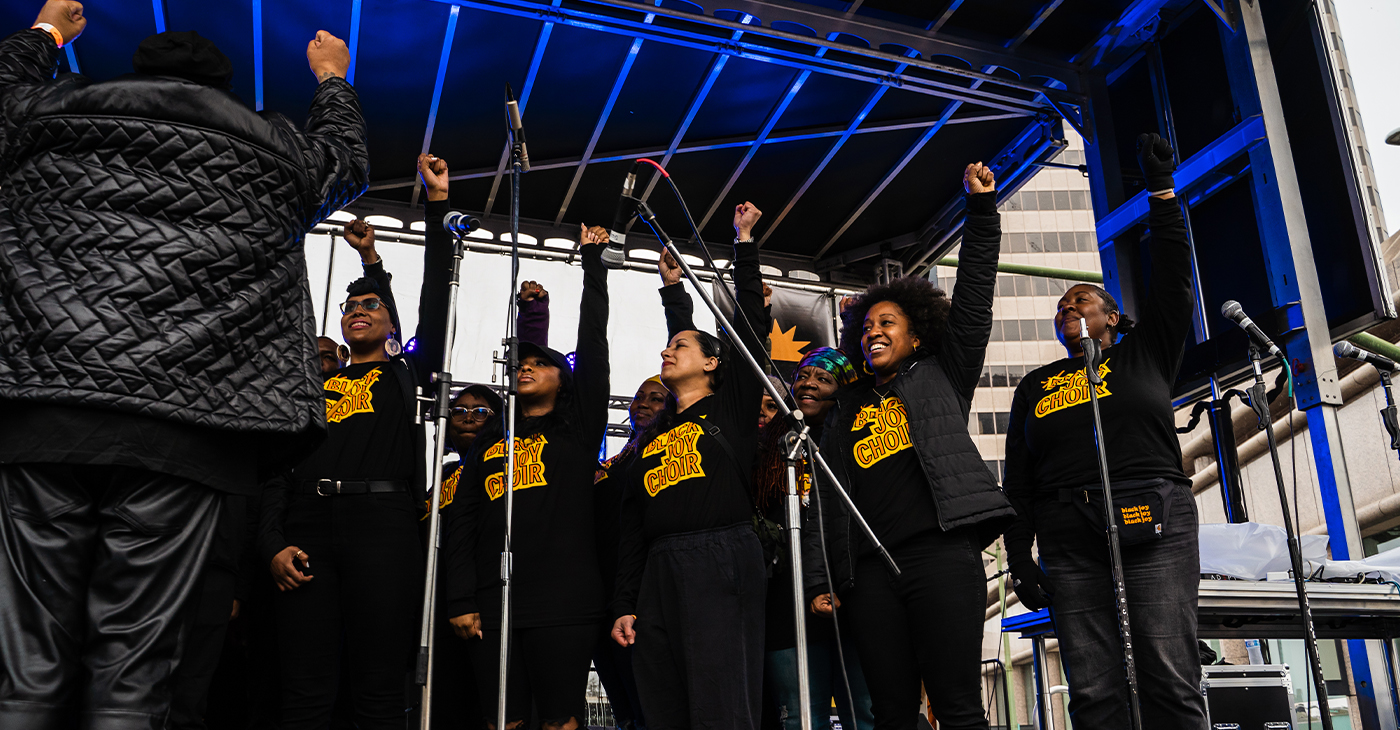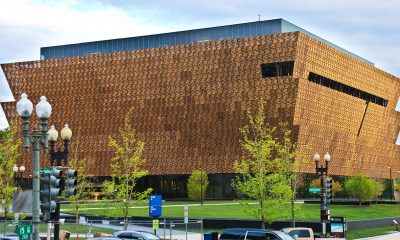Berkeley
Community Colleges Closing the Racial Opportunity Gap?

By Dr. Rowena M. Tomaneng, Berkeley City College President
How can community colleges work effectively and successfully with students coming from the most marginalized communities in the region, many of whom come to college without college-level academic skills? If our formal mission declares a commitment to students of all backgrounds, how can we expect truly academic performances from those students deficient in college-level skills? The severe disproportionate numbers of academically underprepared students comprise students of color, and competent researchers see racism as a profound and long-standing cause of this educational blight.
Students who experience racism have low self-esteem and confidence, feel anxious and stressed, fall behind in schoolwork and get lower results in their exams. In their work on men of color and academic achievement, Harris and Wood (2013) researched how “societal messages about African American and Latino men’s academic abilities or racist stereotypes that depict them as lazy or disinterested in education can influence both students’ and educators’ views about the likelihood that these students will be successful in community college” (from “Student Success for Men of Color in Community Colleges: A Review of Published Literature and Research, 1998-2012).
As a first-generation immigrant from the Philippines, my public education experience in California reflects what many students of color continue to face in educational institutions—marginalization due to explicit and implicit racial/ethnic bias. In grade school, I remember being teased for my accent and being asked if my Pilipino family ate our pets. Even as I pursued my University of California graduate degrees, I experienced disparaging micro aggressions from my white counterparts and professors. Collectively, these experiences impacted my confidence and raised self-doubt in my academic abilities.
In addition to acknowledging research, we need to take stronger action to counter racist and other discriminatory behaviors to restore hope and self-esteem among students of color, so they can believe they will succeed in college. We can also build nurturing learning communities, for example, that use culturally relevant curricula and a pedagogy of self-reflection and personal narrative to validate student experiences. I believe that this “learning community” model provides a necessary cultural and curricular shift on the part of college faculty to begin unpacking the existing assets and capacities of our widely diverse students, rather than to focus on what they do not yet have.
At Berkeley City College (BCC) we have developed learning community programs such as PERSIST (Personal Initiative and Social Transformation), a one-semester bridge program that serves as a gateway toward success in college, for students who wish to transfer or to achieve workforce preparedness. The PERSIST cohort model serves students at the basic skills level who come from socio-economic disadvantage or disability, and as such provides intentional and effective educational access and success for populations underrepresented at BCC.
Our model was also conceived with a Social Justice imperative. PERSIST advances student access, success and equity, and addresses those egalitarian BCC core values of communication, computational skills, critical thinking, self-awareness, interpersonal skills, and information competency. To this end, PERSIST uses an “immersion” model put forth by the Academy for College Excellence (ACE), with two founding faculty as ACE Master Mentors nationwide. Major themes of the PERSIST/ACE Foundational Curriculum include: Deindustrialization of Education, Naming Needs and Emotion, Authentic Communication, and Bringing What You Learn Out into the World.
Successful learning experiences are dependent on the sustained engagement of diverse students. Continued experiences of racism are undeniably associated with increased levels of hopelessness and lower academic achievement. Our current political climate makes it incumbent upon educators to challenge and delegitimize racist and other discriminatory messages in order to restore hope, dreams, and valuation of self among students of color. If we can engage in this consciousness-raising work collectively across our institutions, then we can get one, two, three steps nearer to closing the racial achievement gap.
Visit Berkeley City College if you are interested in learning more about PERSIST and other Learning Community programs. The faculty and I are eager to share our students’ stories with you! You can contact me directly to schedule a visit at rtomaneng@peralta.edu
Activism
Golden State Warriors Program Is Inspiring Next Generation of Female Engineers
Breaking down barriers and biases that deter young girls from pursuing STEAM subjects is essential for creating a level playing field and ensuring equal opportunities for all. By challenging stereotypes and promoting a culture of inclusivity and diversity in STEAM fields, experts believe young girls can be empowered to pursue their interests and aspirations without limitations confidently. Encouraging mentorship, providing access to resources, and celebrating girls’ achievements in STEAM are all crucial steps in creating a supportive environment that fosters success.

By Y’Anad Burrell
The Golden State Warriors and e-commerce giant Rakuten are joining forces to inspire the next generation of female engineers through Building STEAM Futures, part of The City Calls campaign.
Organizers say the initiative is founded on the idea that science, technology, engineering, arts, and mathematics (STEAM) are crucial fields for innovation and progress, and empowering young girls to pursue careers in these areas is more important than ever. Studies consistently show that girls are underrepresented in STEAM fields, resulting in a gender disparity that limits potential and hinders diversity.
Breaking down barriers and biases that deter young girls from pursuing STEAM subjects is essential for creating a level playing field and ensuring equal opportunities for all. By challenging stereotypes and promoting a culture of inclusivity and diversity in STEAM fields, experts believe young girls can be empowered to pursue their interests and aspirations without limitations confidently. Encouraging mentorship, providing access to resources, and celebrating girls’ achievements in STEAM are all crucial steps in creating a supportive environment that fosters success.
On Saturday, March 8, International Women’s Day, the Warriors and Rakuten hosted 20 middle school girls from Girls Inc. of Alameda County at Chase Center’s Above the Rim for a hands-on bridge-building experience. The young girls from Girls, Inc. of Alameda County had an opportunity to design, build and test their own bridge prototypes and learn the fundamentals of bridge construction from the Engineering Alliance and the UC Berkeley Steel Bridge Team.
This STEAM experience for the girls followed the first session in January, where they took a behind-the-scenes tour of the Golden Gate Bridge, learning about its design and construction from industry experts. The City Calls campaign, tipped off with the unveiling the Warriors’ new bridge-themed City Edition jerseys and court design earlier this year.
Activism
Lawsuit Accuses UC Schools of Giving Preference to Black and Hispanic Students
The lawsuit also alleges UC is violating the Equal Protection Clause of the 14th Amendment and Title VI of the Civil Rights Act of 1964, which bars racial discrimination by federally funded institutions. In response, UC stated that race is not a factor in admissions, as per state law, and that student demographic data is collected only for statistical purposes.

By Bo Tefu, California Black Media
A lawsuit filed in federal court accuses the University of California (UC) of racial discrimination in undergraduate admissions, alleging that Black and Latino students are favored over Asian American and white applicants. The lawsuit, filed by the group Students Against Racial Discrimination, claims UC’s admissions policies violate Proposition 209, a state law passed in 1996 that prohibits the consideration of race in public education.
The lawsuit also alleges UC is violating the Equal Protection Clause of the 14th Amendment and Title VI of the Civil Rights Act of 1964, which bars racial discrimination by federally funded institutions.
In response, UC stated that race is not a factor in admissions, as per state law, and that student demographic data is collected only for statistical purposes.
Stett Holbrook, a spokesperson for the UC system, said the entity had not been served with the lawsuit.
“If served, we will vigorously defend our admission practices,” said Holbrook.
“We believe this to be a meritless suit that seeks to distract us from our mission to provide California students with a world-class education,” he said.
The complaint criticizes UC’s use of a “holistic” admissions process, arguing it replaces objective academic criteria with subjective considerations that disadvantage certain racial groups. It cites admission rate disparities at UC Berkeley, noting a decrease in Black student admissions from 13% in 2010 to 10% in 2023, compared to an overall drop from 21% to 12%.
The lawsuit follows the U.S. Supreme Court’s 2023 ruling banning affirmative action in college admissions, which has prompted challenges to race-conscious policies nationwide. The plaintiffs seek a court order preventing UC from collecting racial data in applications and request a federal monitor to oversee admissions decisions.
Activism
Black History Month in the Bay Features, Parades, Festivals and Speakers
Black History Month did not begin as Black History Month. In 1915 after the 13th Amendment was passed Carter G. Woodson and Jesse E. Moorland founded the Association for the Study of Negro Life and History (ASNLH). This organization sponsored the initiation of a national Negro History Week, which took place in February, the same week as Frederick Douglass’ birthday. During the Civil Rights Movement this transformed into the Black History Month we still celebrate today.

By Daisha Williams
Black History Month is a month that is centered in teaching, learning, and honoring the journey of Black people in America. Black people in America have faced discrimination, abuse, and every kind of mistreatment. Black History Month is about recognizing not only that history, but how far the community has come despite it, and celebrating Black joy.
Black History Month did not begin as Black History Month. In 1915 after the 13th Amendment was passed Carter G. Woodson and Jesse E. Moorland founded the Association for the Study of Negro Life and History (ASNLH). This organization sponsored the initiation of a national Negro History Week, which took place in February, the same week as Frederick Douglas’ birthday. During the Civil Rights Movement, this transformed into the Black History Month we still celebrate today.
There are many ways that people celebrate Black History Month and as always, the Bay Area has a little bit of everything.
Most popularly, the Eighth Annual Black Joy Parade will be taking place in Downtown Oakland on Feb. 23. The parade will begin at 14th and Franklin Streets at 12:30 p.m. There will be a festival after the parade ends lasting until 7 p.m. This is the largest Black Joy Parade and sure to be a fun time. Schools, community organizations, and performers can sign up to be in the parade by Feb. 6 on the Black Joy Parade website.
In line with the spirit of the month “From Black History to Black Futures” will take place on Feb. 23 from 2-5 p.m. in Vallejo. This event will show the breadth and beauty of Black life through showcasing speakers, artistic performances, and community booths. This free celebration is hosted by a community organization, Vallejo Building Black Power and Leadership, at 4380 Sonoma Blvd suite 224. The organizers ask that attendees register on Eventbrite because of limited space.
Similar events will be happening in San Francisco and San Leandro.
In San Francisco, Thrive City is hosting a free community event that includes performances of all kinds, from music to spoken word, with the headliner being August Lee Stevens. This event will take place at the Dance Mission Theater on Feb. 1 from 12-3 p.m. Though it is free, priority will be given to people who registered on Eventbrite.
In San Leandro, there will be the Black History Month RnB Day Market at 222 Davis St. This family-friendly event will be put on by the Downtown San Leandro Community Benefit District and include live music, dance performances and a fashion show. This free event will be on Feb. 15 from 12-6 p.m.
There are other ways to celebrate this month other than community festivals and block parties. For example, the College of Marin’s Umoja group is putting together a Black History Month Poetry Reading. This event will be free and take place on Feb. 19 from 12:40 to 1:30 p.m.
At the North Berkeley Senior Center there will be a Black History Month celebration hosted by the City of Berkeley, Health, Housing and Community Services, Mental Health Division. Keynote speaker Gigi Crowder, CEO of the Contra Costa County branch of the National Alliance on Mental Illness (NAMI) will be giving a talk on Feb 11 from 10 a.m. to 1 p.m.
A Black History Month celebration with line dancing, music, and food will be in the Richmond Memorial Auditorium on Feb. 22 1-3 p.m. with doors opening at 12:30. This event will be hosted by the City of Richmond and attendees must register in advance. Tickets are $15 and for more details contact 510-620-6793.
Musical expression has always been a vital part of Black culture, and Black people have contributed largely to the development of many music genres. Stockton Soul is honoring Black History Month with an ensemble created to highlight the legacy of Black music with influences like Curtis Mayfield and Isaac Hayes. The concert will be held on Feb. 15 with tickets for only $8 for adults.
-

 Activism4 weeks ago
Activism4 weeks agoWe Fought on Opposite Sides of the Sheng Thao Recall. Here’s Why We’re Uniting Behind Barbara Lee for Oakland Mayor
-

 Activism4 weeks ago
Activism4 weeks agoFaith Leaders Back Barbara Lee for Mayor, Criticize Candidate Loren Taylor for Dishonest Campaigning
-

 Activism3 weeks ago
Activism3 weeks agoOakland’s Most Vulnerable Neighborhoods Are Struggling to Eat and Stay Healthy
-

 #NNPA BlackPress4 weeks ago
#NNPA BlackPress4 weeks agoRev. Dr. Jamal Bryant’s Black Church Target Boycott Mobilizes 150,000
-

 #NNPA BlackPress4 weeks ago
#NNPA BlackPress4 weeks agoRecently Approved Budget Plan Favors Wealthy, Slashes Aid to Low-Income Americans
-

 Activism2 weeks ago
Activism2 weeks agoOakland Post Endorses Barbara Lee
-

 Activism4 weeks ago
Activism4 weeks agoGroup Takes First Steps to Recall District Attorney Diana Becton
-

 Activism4 weeks ago
Activism4 weeks agoOakland Post: Week of March 19 – 25, 2025






















































